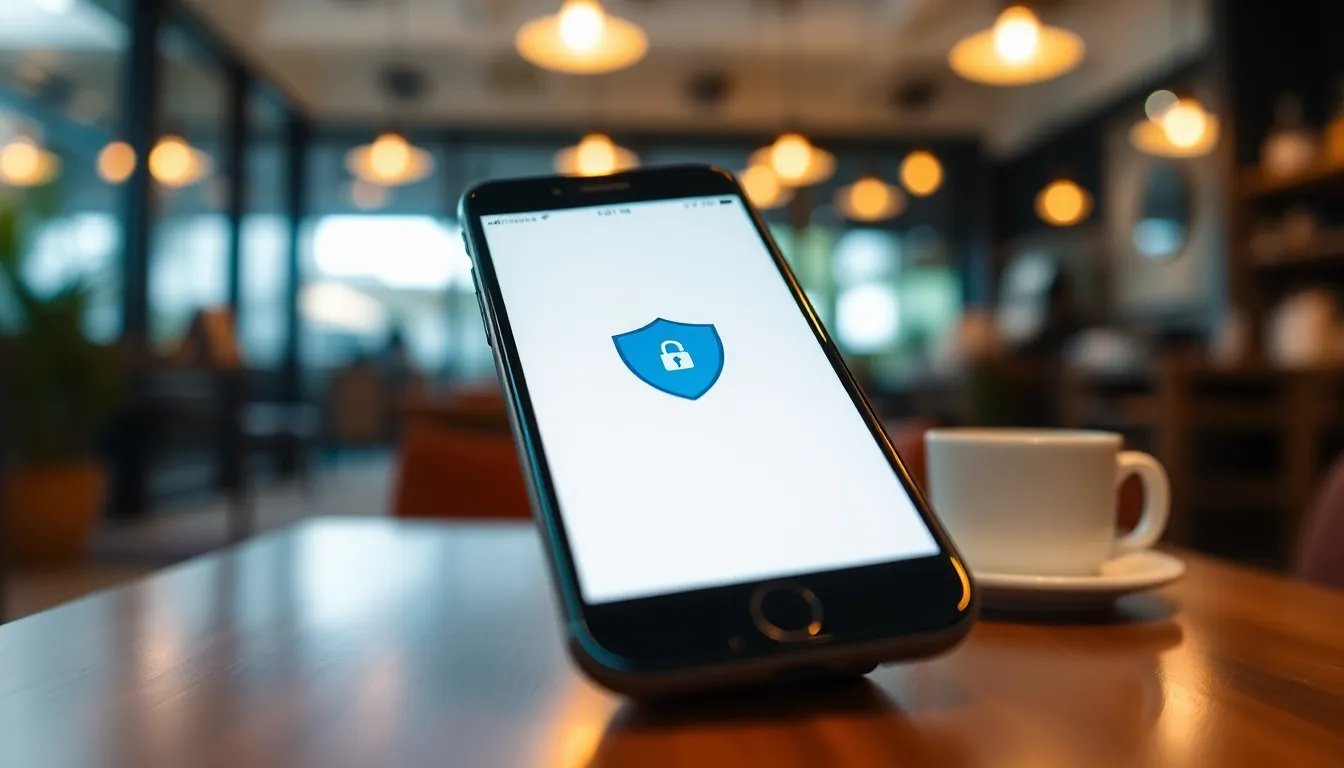In a world where scrolling through social media feels like an Olympic sport, the last thing anyone wants is a battery that gives up halfway through the race. Enter the VPN—your trusty digital bodyguard that keeps prying eyes at bay. But does this superhero come with a hidden kryptonite?
Table of Contents
ToggleOverview of VPN and iPhone Usage
VPNs, or Virtual Private Networks, serve as tools for enhancing online privacy and security. iPhones, widely recognized for their strong security features, also benefit from VPN usage by encrypting user data and masking IP addresses. Users often rely on VPNs while accessing public Wi-Fi networks, where data is vulnerable to interception.
Battery consumption increases when a VPN operates on an iPhone. The added encryption process demands resources, leading to higher battery usage during prolonged use. Research indicates that VPN apps can reduce battery life by approximately 10-15 percent, varying with usage scenarios and iPhone models.
Web traffic re-routing through VPN servers contributes to this impact, requiring additional processing power. The specific VPN protocol selected affects battery drain; for instance, protocols like OpenVPN may consume more energy compared to IKEv2. Users should consider these factors when choosing a VPN for their iPhone.
Regular updates to both iOS and VPN applications may help optimize performance and reduce battery strain. Some users have reported significant improvements in efficiency after these updates. Understanding the trade-off between enhanced privacy and battery life is crucial for iPhone users utilizing VPN services.
Informed decisions rely on recognizing the balance between maintaining security and managing device performance. By monitoring app behavior and adjusting usage patterns, iPhone users can mitigate excessive battery drainage while benefiting from VPN services.
How VPN Works on iPhone

VPNs operate by creating a secure tunnel between the user’s device and the internet. This connection encrypts data, providing privacy and protecting sensitive information from potential threats.
Technical Aspects of VPN Connection
A VPN connection relies on three main components: the VPN client, the server, and the network. The VPN client resides on the iPhone, managing the connection process. It first establishes a secure link to a remote server, which then acts as the intermediary for internet traffic. Data packets travel through an encrypted tunnel, safeguarding them from hackers and third parties. This encryption process may introduce some latency, which can affect connection speed. Users might notice increased battery consumption due to continuous encryption and communication with the remote server.
Types of VPN Protocols
Several VPN protocols determine how data is transmitted. Common choices include OpenVPN, L2TP/IPSec, and IKEv2. OpenVPN offers a balance of security and speed, often recommended for general use. L2TP/IPSec enhances security but may slow down connection speeds. IKEv2 stands out for its stability and ability to reconnect after network interruptions, making it ideal for mobile devices. Users should consider their specific needs, as each protocol impacts battery life differently, with some causing more drain than others.
Impact of VPN on iPhone Battery Life
Using a VPN can significantly impact an iPhone’s battery life. Factors contributing to this drain include connection type and the protocols used.
Factors Influencing Battery Drain
Connection stability plays a crucial role in battery consumption. When a VPN connects to distant servers, it requires additional power to maintain that link. The VPN protocol also matters; some, like OpenVPN, can consume more energy due to encryption processes, while others may offer efficiency. Background app activity can exacerbate battery issues, as a VPN running continuously increases overall power demand. Additionally, factors such as screen brightness and location services compound the drain experienced when utilizing a VPN.
Comparing Battery Life with and without VPN
Battery life differs noticeably between VPN usage and standard browsing. Research indicates that using a VPN can reduce battery life by 10-15 percent during heavy use. An iPhone running a VPN often experiences higher battery consumption during data-intensive tasks such as streaming or large downloads. In contrast, without a VPN, battery usage typically stabilizes at a lower level. Users may find that the trade-off for enhanced privacy comes at the cost of enduring reduced battery efficiency, especially during extended sessions.
Tips to Minimize Battery Drain While Using VPN
Using a VPN can impact battery life on iPhones, but several strategies exist to help minimize this effect.
Selecting Efficient VPN Services
Choosing an efficient VPN service plays a key role in reducing battery strain. Look for VPNs that prioritize speed and optimize data transfer. Some providers offer lightweight applications designed for mobile devices, ensuring lower resource consumption. Research indicates that protocols like IKEv2 tend to be less battery-intensive compared to others. Subscription plans that include a dedicated server location closer to the user can enhance connection stability. Faster connections require less power, resulting in improved battery efficiency. Verify reviews from users regarding battery performance for each VPN service to make an informed decision.
Adjusting VPN Settings
Adjusting VPN settings can further enhance battery life during usage. Enable features like split tunneling to limit VPN functions only to essential applications. Creating exceptions for less sensitive apps minimizes excessive resource use. Reducing the encryption level, if security requirements allow, often lowers battery consumption. Keep the VPN app updated to benefit from performance improvements and battery optimizations. Users should also monitor connection types; using a wired connection for intensive tasks may significantly reduce battery drain during VPN use. Frequent updates can increase efficiency, ensuring the VPN app operates smoothly on the iPhone, directly impacting battery longevity.
Using a VPN on an iPhone offers significant privacy benefits but comes with the trade-off of increased battery consumption. Users should be aware that while a VPN encrypts data and secures connections, it may lead to noticeable battery drain, particularly during data-intensive tasks.
To balance privacy and battery life, selecting efficient VPN services and protocols is crucial. Implementing strategies like adjusting settings and monitoring app behavior can help minimize excessive battery usage. By making informed choices, iPhone users can enjoy enhanced online security without sacrificing battery efficiency.


